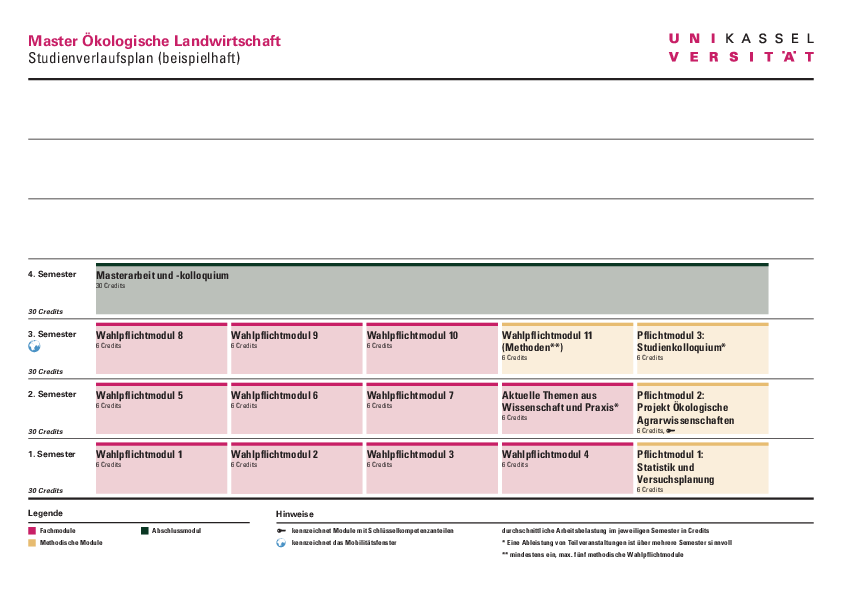Study structure
The content on this page was translated automatically.
Course of studies
Within the framework of the Master's program, module examinations accompanying the course of study must be completed in the following 3 modules, each with 6 credits. These serve to methodically prepare for and accompany the master's thesis.
- Statisticsand Verseeksplanung or alternatively Komple xeMethoden of So zialforschung
- Projekt Ökologische Agrarwissenschaften
- Studiencolloquium
Students can set their own individual study profile.
Within the framework of the Master's program, students must complete module examinations with a minimum of 36 and a maximum of 60 credits, i.e. 6-10 modules in the following areas:
- Boden and Pflanzenbauwissenschaften
- Agricultureanimalsciencesensheepten
- Economiccess, Sozial and Lebenswithtelwissenschaften
- Free project
Students can set their own individual study profile. At least one module must be taken. A maximum of five modules can be taken:
- Angewandte Methoden der Pflanzenzüchtung
- Statistik and Verseeksplanung II
- Methoden of animalwellforschung
- Angewandte Methoden of animalbreeding
- Marketing research
- Participatory research methods for sustainability
- Methods and advances in plant protection
- Nutrient dynamics: long-term experiments and modelling - bilingual
In individual often practice-oriented seminars, special aspects of organic agriculture and related disciplines as well as methods and languages are elaborated during the course of study, e.g. Soil Science Exercises, Wildlife Education, Poultry Feeding or Technical English.
Detailed information on the module "Current topics in science and practice".
The master thesis has a processing time of 22 weeks. As a rule, there is an experimental and scientific examination of a topic of choice.
